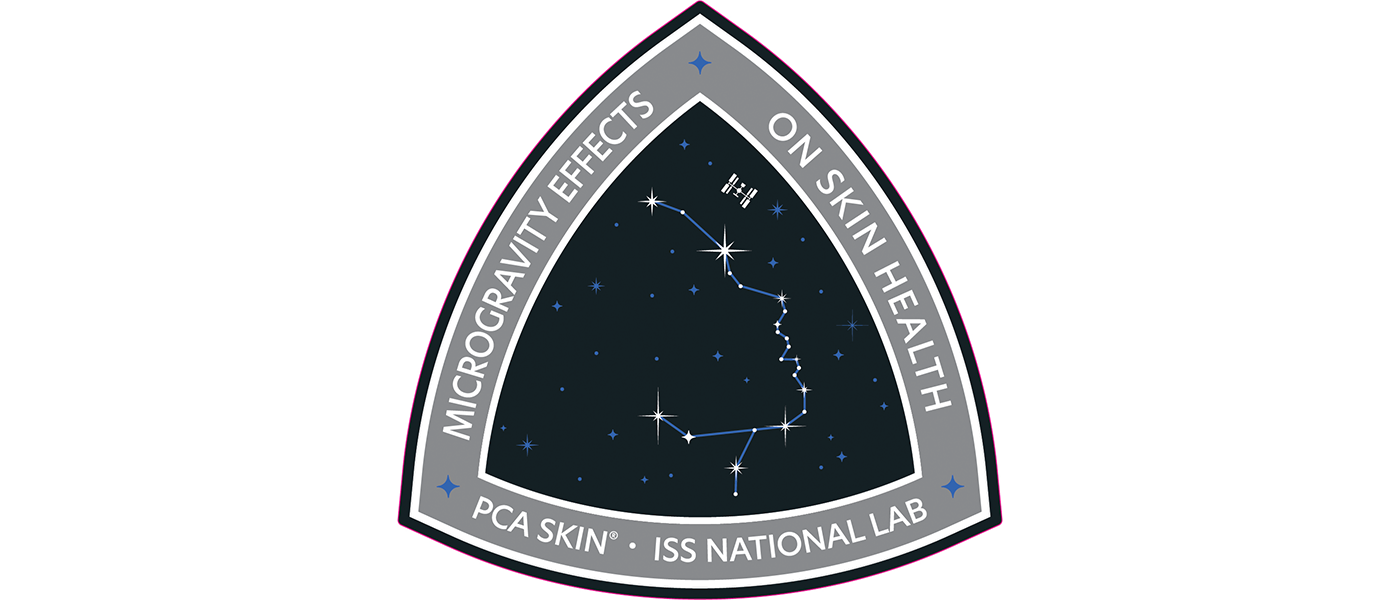PCA Skin’s next skin care breakthrough will literally be out of this world. The brand is sending the first private sector skin health experiment to the International Space Station (ISS) on February 19, to conduct space experiments to fuel skin care research and development.
“It feels so exciting to be the first,” said Lia Arvanitidou, Global Technology and Design Vice President for Colgate-Palmolive’s skin health businesses. “We are going beyond our world and into space to test what we know and to learn what we don’t know.”
The experiment will study the effects of microgravity on skin-related genes as the biomarkers used to evaluate overall skin health. Since space travel has shown to accelerate the aging process, it creates a unique environment for scientists to study the effects of aging.
“As a company, we are reimagining a healthier future for all people and the planet,” Lia said. “For more than 30 years, PCA Skin pioneered and perfected the science of skin to improve people’s lives. This partnership with the International Space Station will further PCA’s legacy as a results-driven, professional grade skincare company that is deeply rooted in science. On a personal note, as a scientist, I am so excited because we always look to learn, discover and innovate.”
Why Skin Research in Space Matters
Astronauts have reported and data has shown that space travel and exposure to microgravity has a negative effect on muscles, bones, and skin. Not only is skin drier and flakier in space, it’s also more susceptible to cuts and bruises. “If we step back, this affects dry skin, skin thinning, and bruising that also is observed on Earth during the normal aging process,” Lia said. “In space, microgravity gives us the accelerated view of what is going to take a long time to happen on Earth, so that’s why we’re interested in conducting the experiment in space.”
The experiment is sponsored by the ISS National Lab and will travel to the ISS aboard Northrop Grumman’s 17th commercial resupply services mission, from NASA’s Wallops Flight Facility in Virginia. The duration of the study from the time the experiment reaches the ISS will be seven days, with different time points in order to study the impact of microgravity.
“To capture the biological response, we need to conduct a time course experiment, so we have time points of one, three, five, and seven days,” Lia said. “At those time points, live human skin tissue will be harvested and immediately frozen at minus 80 degrees centigrade. They will be kept frozen until they return to Earth in approximately five to six months. When the samples return to our lab, we’ll compare them to those that were observed in matching control experiments that we conducted on the ground. Based on the gene expression analysis, we will see what genes have changed from microgravity versus Earth.”
Identifying Genes to Develop Breakthrough Skin Care
PCA Skin hopes the experiment will bring results that will help them find ways to better identify areas for early intervention in skin health. “Today, we know certain genes change with the aging process and that’s how we develop products, trying to intervene in that process,” Lia said. “But quite possibly, from the experiment in space, we can identify additional genes. Ultimately, with this knowledge, we hope we get guidance to develop breakthrough skincare innovations across all of our skin health group brands. My dream is that with these fundamental learnings, we’re going to be able to design products that one day we take to space and test there.”




